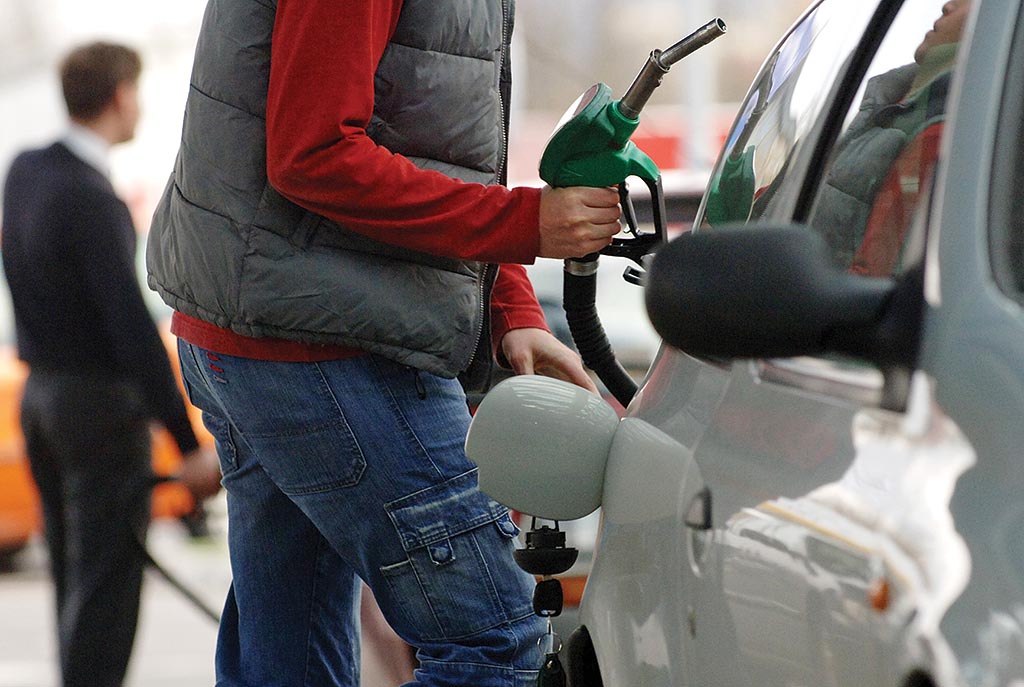Even though fossil fuel prices have returned to pre-war levels since the start of the war in Ukraine, fuel prices in Slovenia are slowly but steadily rising. The reason? The government is raising excise duties, and the so-called “ecological” duties have also been back in the fuel price calculations for some time now.
As of midnight on Tuesday, the prices of petrol, diesel and heating oil outside motorways and expressways have risen. A litre of petrol now costs €1.444, a litre of diesel costs €1.481, and a litre of heating oil now costs €1.060. The government increased excise duties on all three fuels and reintroduced the contributions for renewable energy sources for petrol.
The excise duty on unleaded petrol has been increased from €0.41159 per litre to €0.43025 per litre, on gas oil for fuel (diesel) from €0.44322 per litre to €0.45513 per litre, and on gas oil for heating (KOEL) from €0.13297 per litre to €0.14739 per litre.
The government is defending itself, saying that excise duties are being raised for “fiscal sustainability and to gradually normalise the inflows to the state budget.”
While the prices of fuels have been gradually increasing since the 9th of May 2023, oil prices have stagnated or fallen on world markets.
As we can see, petrol prices have risen by 5.4 cents in two months and diesel prices by as much as 6 cents, both in small, imperceptible steps, but solely as a result of higher excise duties. In the short term, the announcement by Saudi Arabia and Russia that they would produce fewer barrels of oil has pushed up prices on world markets, stabilising the falling price of Brent crude oil for fear of inflation at around USD 70, as the world economy is still in fear of an ongoing financial and economic crisis that could even develop into a permanent stagflation (inflation and recession at the same time). By way of comparison, after the start of the Russian invasion of Ukraine, the price of crude oil briefly reached USD 140 per barrel in the spring of 2022.
During this period of relative calm on the fossil fuel market, the Slovenian state, instead of taking care of its citizens and easing inflationary pressures (like Croatia), has taken care of filling the state budget. Let us remind you that fossil fuel prices not only affect inflation directly, but also indirectly, since all services in a market economy are linked to fuel prices. Thus, the state is unwilling to optimise its own spending – even though it is warned every quarter by the Fiscal Council that it is excessive. The state is thus healing the wounds of excessive waste of public money at the expense of citizens.
The incomprehensible policy of taxing diesel
At the same time, taxes on diesel make it more expensive than petrol, even though the government has committed itself to environmental targets that aim, in particular, to reduce carbon dioxide emissions into the environment. In fact, diesel engines emit 20-25 percent less CO2 compared to an equivalent petrol engine of the same size and generation. In Croatia, they understand this very well. There, too, new fuel prices have been introduced on Tuesday, with both petrol and diesel going up by four cents, but diesel is still 10 cents cheaper than petrol (€1.44 for petrol and €1.34 for a litre of diesel). The Austrian government has adopted a similar tax policy. Higher taxes on diesel were a trend in the European Union at the end of the last decade because of the dieselgate emissions scandal, when US investigators found that Volkswagen vehicles emitted more harmful gases than their specifications claimed. In the meantime, technology has advanced – diesels use less fuel, are more durable, the particulate matter problem has been solved by a new generation of diesel particulate filters, and they emit less CO2. Unfortunately, the Slovenian government’s policy is stuck in 2015.
Andrej Žitnik


